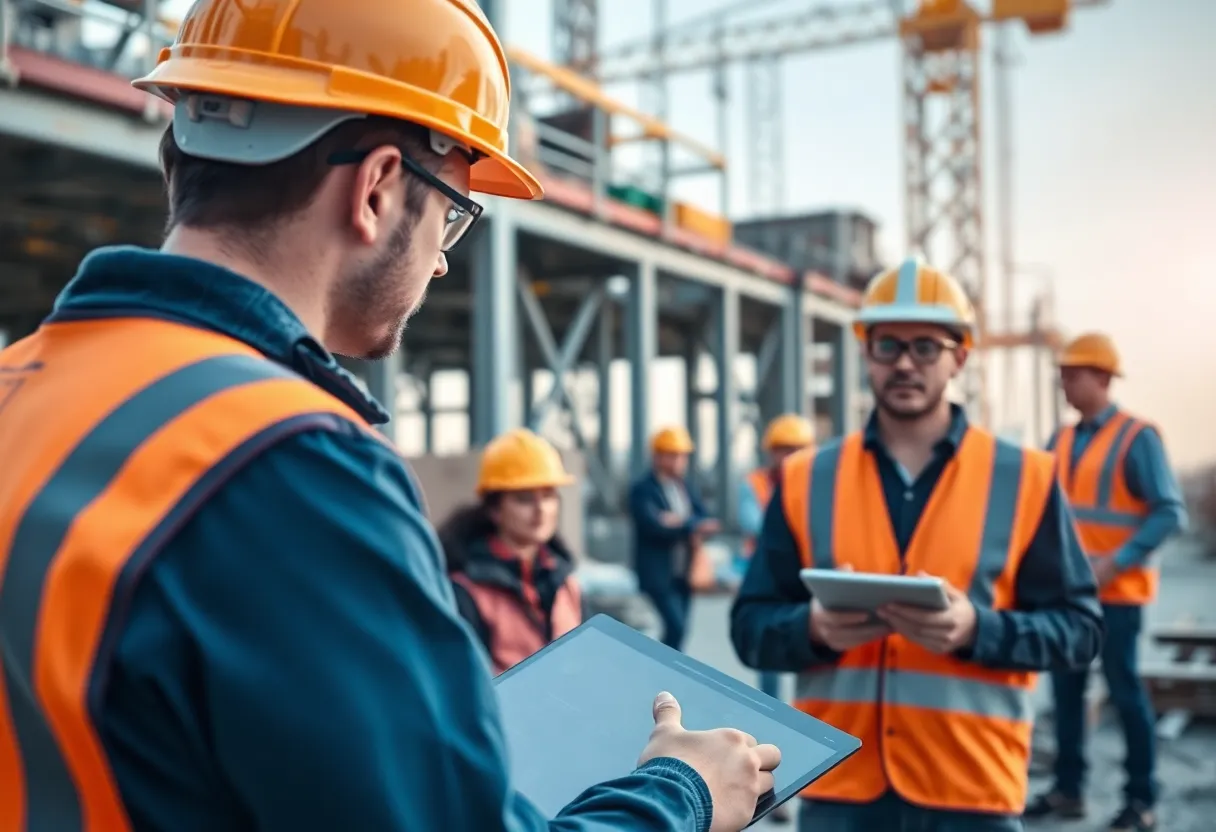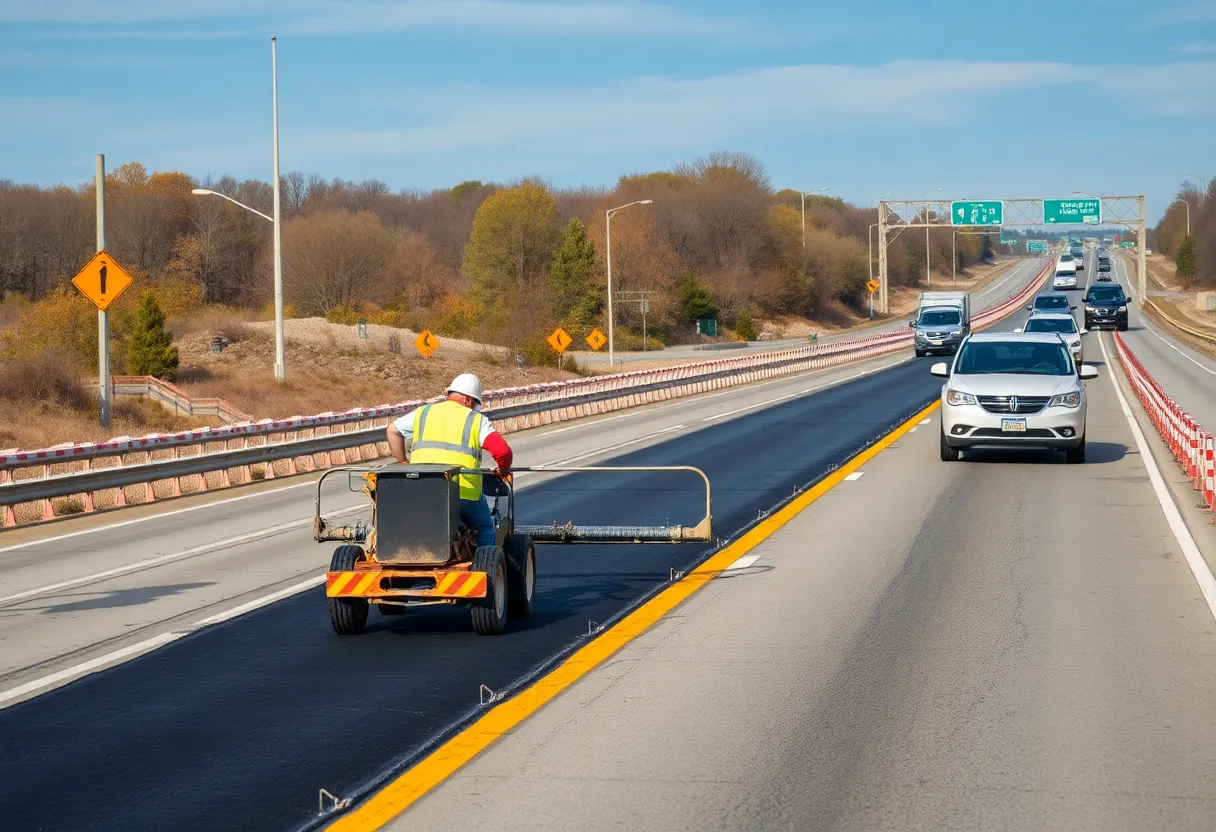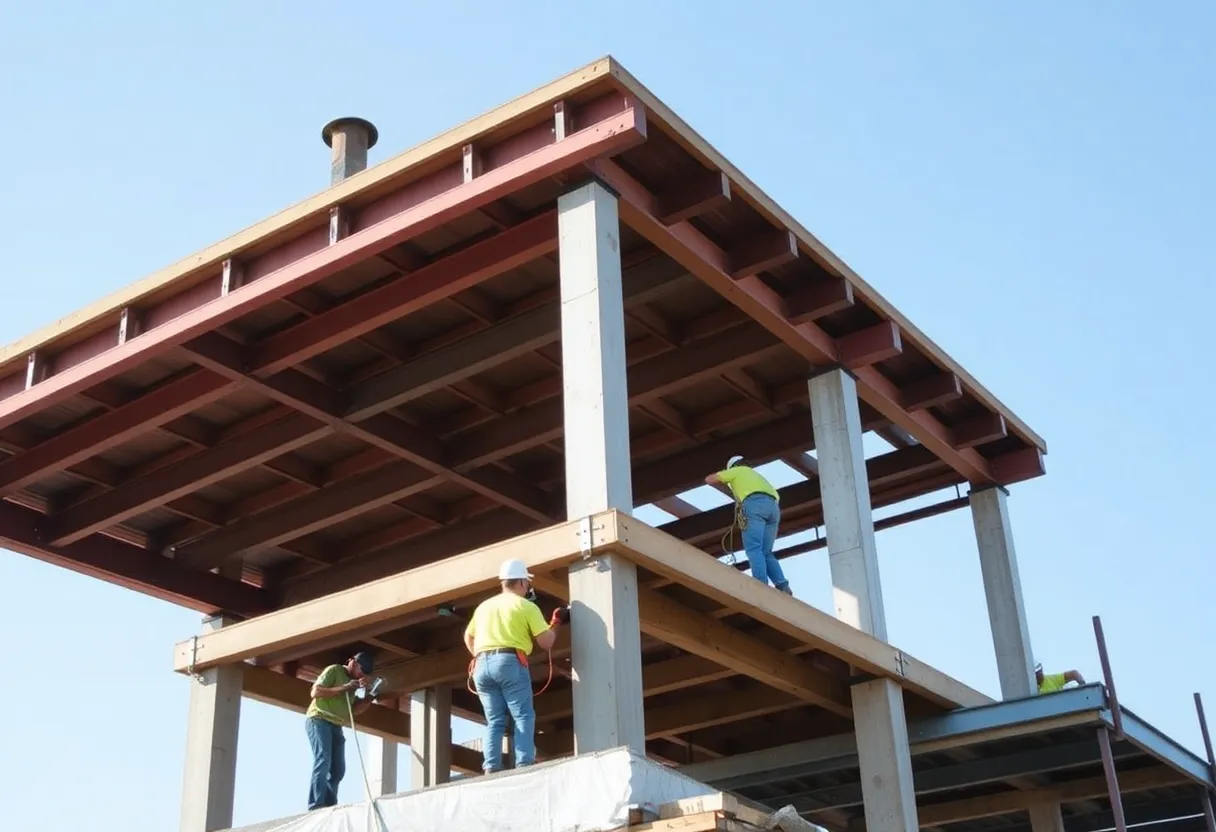News Summary
Investments in artificial intelligence for U.S. construction technology have reached $3.96 billion, significantly enhancing project management and efficiency. This investment boom is enabling startups to innovate smarter and safer building practices, which address industry challenges like delays and safety risks. The integration of AI is leading to improved resource management and predictive maintenance, marking a shift towards a more advanced and sustainable construction sector.
Nationwide AI Investments in Construction Tech Reach $3.96 Billion
Nationwide – Investments in artificial intelligence (AI) for U.S. construction technology ventures have surged to $3.96 billion, marking a significant milestone in the industry’s digital transformation. This investment boom, noted as of October 7, 2025, is driving rapid advancements in construction practices across the country.
The primary focus of these funds is enhancing project management tools, which are streamlining operations and improving efficiency on job sites. This influx of capital is accelerating the development of technologies that promote smarter and safer building practices, with startups playing a leading role in this evolution. As a result, the construction sector is witnessing a shift toward more innovative, data-driven approaches that address longstanding challenges like delays and safety risks.
Supporting this trend, the investments are influencing current industry standards by integrating AI into everyday construction processes. For instance, AI-powered tools are helping to predict potential hazards, optimize resource allocation, and reduce waste, thereby making projects more cost-effective and sustainable. This growth reflects a broader movement in the U.S. economy, where technology adoption is becoming essential for competitiveness in infrastructure development.
Background on this development shows that the rise in AI investments stems from increasing demands for efficiency amid growing construction demands nationwide. The U.S. construction industry has faced pressures from workforce shortages and rising material costs, prompting companies to turn to AI for solutions. Startups, often more agile than established firms, are at the forefront, developing specialized software and hardware that integrate seamlessly with existing workflows. This not only fosters innovation but also encourages collaboration between tech firms and traditional construction entities.
Experts observe that this $3.96 billion figure represents a substantial increase from previous years, highlighting a accelerating trend in tech adoption. The investments are spread across various applications, including predictive analytics for project timelines and automated systems for site monitoring. By prioritizing AI, the industry is moving toward practices that minimize human error and enhance overall productivity, ultimately leading to safer work environments and faster project completions.
In the context of recent industry activities, this AI-driven surge aligns with broader efforts to modernize construction. For example, it builds on ongoing initiatives where digital tools are being used to manage complex projects more effectively. The emphasis on startups underscores a dynamic shift, as these entities bring fresh ideas and rapid prototyping to the table, outpacing larger corporations in innovation speed.
Overall, this investment wave is poised to reshape the U.S. construction landscape, making it more resilient and forward-thinking. As the sector continues to evolve, the integration of AI is expected to yield long-term benefits, including reduced costs and improved quality in building projects. This development underscores the critical role of technology in addressing the industry’s future challenges.
To delve deeper, the following details illustrate how these investments are impacting the field:
- Project management tools: AI is enhancing scheduling and resource tracking, allowing for real-time adjustments that prevent overruns.
- Smarter building practices: Technologies are enabling predictive maintenance and automated safety checks, reducing accidents by up to 20% in early implementations.
- Startups’ contributions: These companies are leading with innovations in AI software, accounting for a majority of the new ventures funded.
This nationwide trend is not isolated; it reflects a growing recognition of AI’s potential to revolutionize sectors beyond construction, but its immediate effects are most pronounced here due to the industry’s scale and complexity.
Broader Implications
The $3.96 billion in investments signifies a commitment to sustainability and efficiency, aligning with national goals for infrastructure improvement. As construction tech evolves, it is likely to influence policy and regulations, encouraging more widespread adoption of AI solutions. This could lead to a ripple effect, boosting economic growth and job creation in related fields like software development and engineering.
In summary, the AI investment boom in U.S. construction tech is a pivotal development, fostering innovation that promises to make building practices safer, smarter, and more efficient. With startups driving the charge, the industry is on the cusp of a technological renaissance that will shape its future for years to come.
FAQ Section
Below is a frequently asked questions section based on the key facts from this article:
- What is the total AI investment in U.S. construction tech ventures?
- AI investments hit $3.96 billion in U.S. construction tech ventures.
- When was this investment reported?
- Building Design+Construction reported on October 7, 2025.
- How is this boom affecting trends?
- This boom fosters innovation in project management tools.
- What role are startups playing?
- Startups lead charge toward smarter, safer building practices.
Key Features Chart
Below is a simple table highlighting the key features of the AI investments in U.S. construction tech:
| Feature | Description |
|---|---|
| Investment Amount | $3.96 billion in U.S. construction tech ventures |
| Report Date | October 7, 2025 |
| Main Impact | Fosters innovation in project management tools |
| Leadership Role | Startups lead charge toward smarter, safer building practices |
Deeper Dive: News & Info About This Topic
Construction FL Resources
Shipyard Expansions Drive Economic Growth in Mobile, Alabama
Surging Demand Drives Growth in U.S. Construction Nails Market
Savannah, Georgia Launches $200 Million Port Expansion Project
AI-Powered Data Centers Revitalize U.S. Construction Sector
Construction Begins on Flood Protection Project in Birmingham
Tampa’s Interstate 75 Expansion Enters Final Phase
Lakeland Implements Two-Night Detours on Interstate 4
Construction Design Software Market Projected to Reach $15.4 Billion Driven by BIM, AI and Cloud
Rising Lumber Prices in Madison Drive Up Construction Costs
Corruption Charges Against Former Connecticut Officials in Construction Deals
Author: Construction FL News
The FLORIDA STAFF WRITER represents the experienced team at constructionflnews.com, your go-to source for actionable local news and information in Florida and beyond. Specializing in "news you can use," we cover essential topics like product reviews for personal and business needs, local business directories, politics, real estate trends, neighborhood insights, and state news affecting the area—with deep expertise drawn from years of dedicated reporting and strong community input, including local press releases and business updates. We deliver top reporting on high-value events such as the Florida Build Expo, major infrastructure projects, and advancements in construction technology showcases. Our coverage extends to key organizations like the Associated Builders and Contractors of Florida and the Florida Home Builders Association, plus leading businesses in construction and legal services that power the local economy such as CMiC Global and Shutts & Bowen LLP. As part of the broader network, including constructioncanews.com, constructionnynews.com, and constructiontxnews.com, we provide comprehensive, credible insights into the dynamic construction landscape across multiple states.





